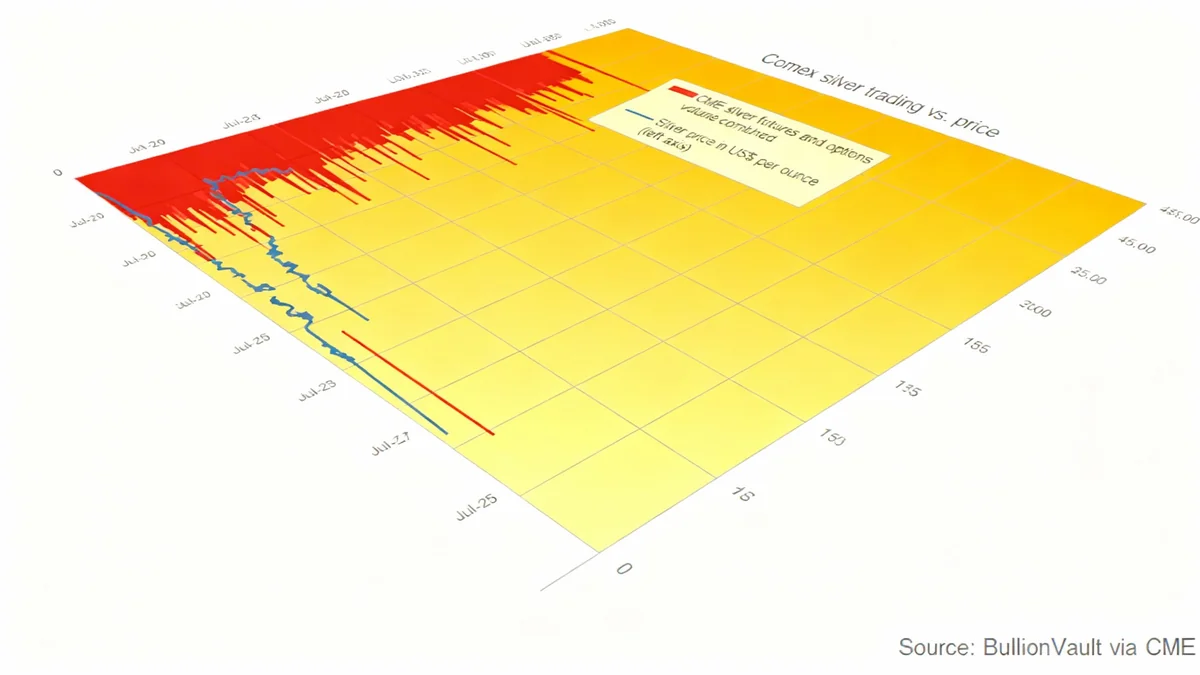Microsoft has achieved a rare consensus on Wall Street, with every major analyst now recommending its stock as a 'Buy.' The final holdout, Guggenheim Securities, upgraded its rating on Monday, citing the company's powerful position in the artificial intelligence sector.
Following the announcement, Microsoft shares climbed 1.6% to trade at $531.75, reflecting renewed investor confidence ahead of its quarterly earnings report scheduled for this Wednesday.
Key Takeaways
- Guggenheim Securities upgraded Microsoft to 'Buy' with a $586 price target, making the rating unanimous across all 61 analysts surveyed by FactSet.
- The company's AI strategy is seen as a dual-engine for growth, driving both its Azure cloud platform and its M365 productivity suite.
- Strong Azure revenue growth of 39% in the previous quarter indicates sustained demand for AI infrastructure.
- The AI assistant, Copilot, is expected to add a high-margin revenue stream, potentially increasing M365 revenue by 30%.
A Perfect Score from Analysts
In a significant show of confidence, Guggenheim Securities shifted its stance on Microsoft from 'Neutral' to 'Buy,' establishing a price target of $586 per share. This move is noteworthy because it aligns the firm with the 60 other analysts tracked by FactSet, creating a unanimous 'Buy' or equivalent rating for the tech giant.
According to Dow Jones Market Data, Microsoft is now the only company to hold such a distinction, signaling widespread belief in its growth trajectory. The positive sentiment comes as the company's stock has already appreciated 24% this year, outperforming the broader market indexes like the S&P 500 and Nasdaq Composite.
Market Context
A unanimous 'Buy' rating from dozens of independent financial analysts is an exceptionally rare event for a company of Microsoft's scale. It indicates a powerful and widely held belief that the company's future earnings potential is strong and that its current market strategy is correctly positioned for growth, particularly in high-demand sectors like artificial intelligence.
The Twin Engines of AI Growth
Analysts point to a two-pronged strategy that positions Microsoft to capitalize on the ongoing AI revolution. The first and most visible driver is its cloud computing division, Azure.
Azure's AI-Powered Expansion
The demand for AI computing power and infrastructure has directly translated into robust growth for Azure. In its last fiscal quarter, the platform's revenue surged by 39%, comfortably beating analyst expectations of 35% growth. This performance is seen as a strong indicator of future success.
Industry checks confirm that a significant portion of this demand is fueled by companies seeking the necessary infrastructure to develop and deploy their own AI models. Analysts at Cantor Fitzgerald, who maintain a $639 price target, noted that the current supply-demand imbalance for AI computing power benefits major cloud providers like Microsoft.
Azure's revenue growth in the previous fiscal quarter, surpassing the 35% that analysts had anticipated.
Monetizing Productivity with Copilot
Beyond its cloud infrastructure, Microsoft is leveraging AI to enhance its dominant suite of productivity software, M365, which includes applications like Word, Excel, and Teams.
The company has introduced Copilot, an AI assistant integrated into these applications. Guggenheim analysts highlighted that Microsoft's near-monopoly in the productivity space gives it a unique ability to directly monetize this AI offering. The integration of Copilot has allowed Microsoft to increase subscription prices for its M365 consumer plans, a move that could significantly boost revenue.
"We believe the company is set up well to outperform for the rest of this year," wrote John DiFucci, an analyst at Guggenheim, in a note to clients.
The financial implications are substantial. Guggenheim calculated that the Copilot add-on could increase revenue from the M365 business by 30% with a profit margin approaching 100%. The strategy is expected to be replicated with its much larger M365 Commercial customer base, creating a massive new stream of high-profit revenue.
Investor Outlook and Upcoming Earnings
While Microsoft's strengths are already reflected in its high valuation, investors are buying into what many see as a relatively secure investment in the competitive tech landscape. The company’s established market position and clear path to AI monetization provide a buffer against volatility.
All eyes are now on Microsoft's upcoming quarterly earnings report, which will be released after the market closes on Wednesday. Investors and analysts will be watching closely for continued strength in Azure's growth figures and any new details on the adoption and revenue impact of Copilot. The results are expected to set the tone for the stock's performance for the remainder of the year.





